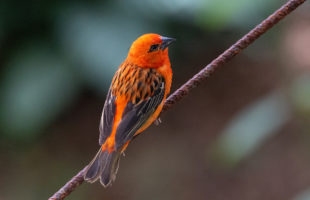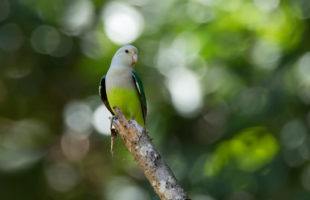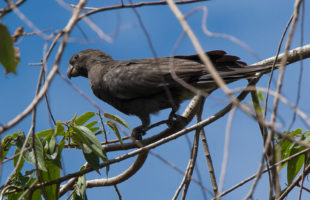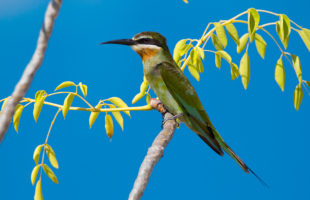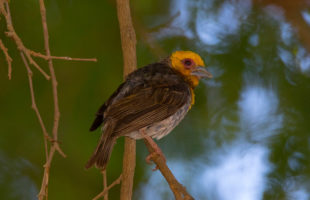Everything is a bit more colourful in Madagascar – even the sparrows on the roofs! The best example of this is the Madagascar Fody (Foudia madagascariensis). The Malagasy call him Red Fody, sometimes spelt Fodi or Foudi. Fodys are distributed all over the country. They are considered one of the most common birds in Madagascar. They can be found near …
LesenSchlagwort-Archiv: Vogelkolonie
A partner for life: Grey-headed lovebirds
All over Africa, there are lovebirds: Small, colorful parrots that live with the same partner for life. They are not only famous for their lifelong pair bond, but also for extensive social behavior. Once a pair has found each other, the little birds are constantly seen cuddling or grooming each other’s feathers. Madagascar is also home to lovebirds, especially small …
LesenThe black Vasa Parrots
Madagascar has many fascinating animals. There is only one thing the island in the Indian Ocean does not have: large, colorful parrots. Instead, evolution has come up with something very special here. In the Malagasy tropics, parrots are completely black. The unusual birds are called Vasa Parrots. There are different species: One is the Greater Vasa Parrot (Coracopsis vasa). It …
LesenMadagascar’s bee-eaters
Bee-eaters (Merops superciliosus) are among the most colourful birds in Madagascar. Here and there it is called olive bee-eater. Including its tail this small bird measures up to 30 cm in length, and it is not even 50 g heavy. It is not easy to differentiate males and females by colour: Both wear a splendid green plumage with a beige-reddish …
LesenStrong together: The Sakalava weaver
The small, only 25 g weighing Sakalava weaver (Ploceus sakalava) only occur in Madagascar. As the name indicates, they belong to the weaver birds and are widely distributed around the island: Everywhere where the eponymous tribe of the Sakalava lives. This is mainly western Madagascar; from the deep, hot and dry South to the North. Sakalava weaver prefer dry areas. …
Lesen MADAMAGAZINE Your Magazine about Madagascar
MADAMAGAZINE Your Magazine about Madagascar
